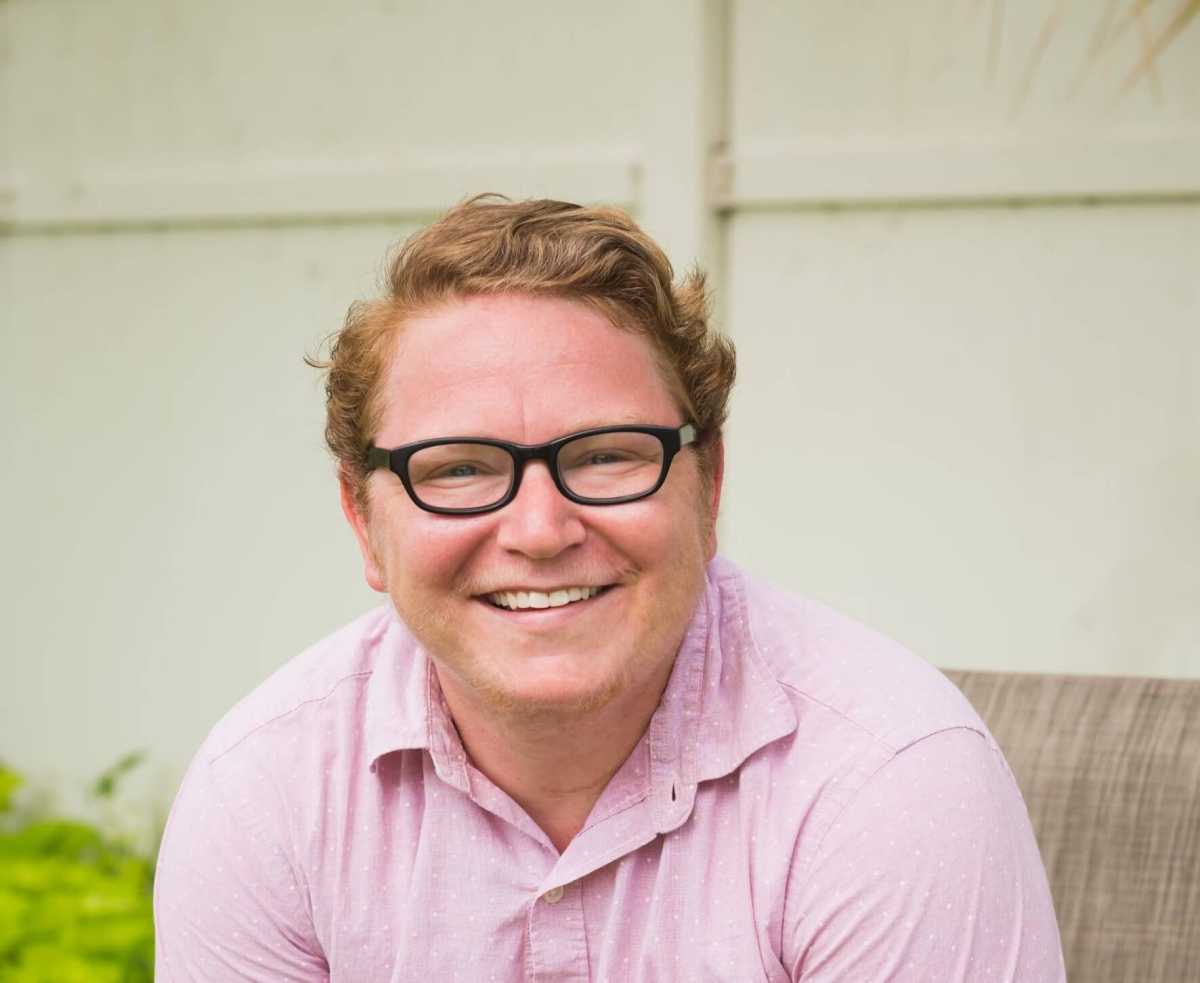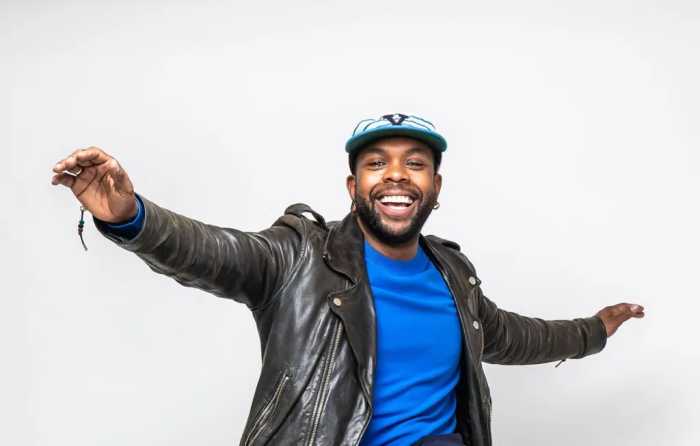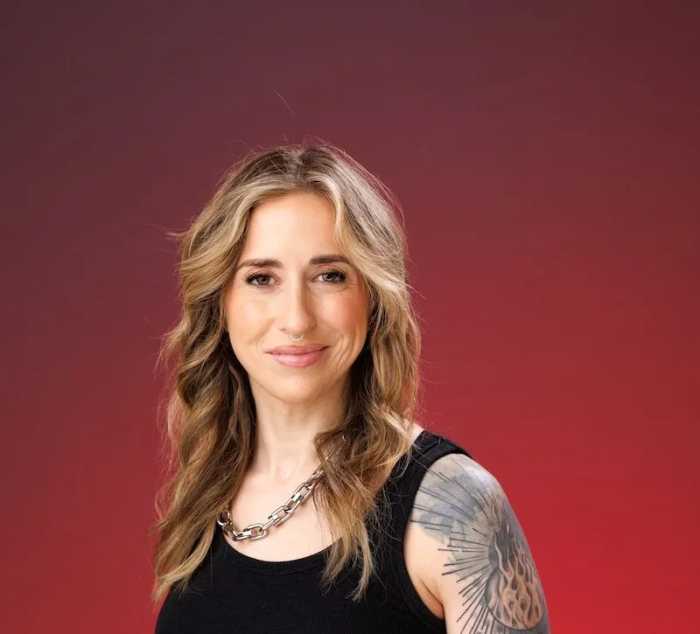“Thank You For Coming Out,” Gay City News’ podcast, is celebrating its fifth season with a live recording on Sunday, October 15. The date coincides with National Coming Out Day, which was on Wednesday, October 11.
The live show will take place at 8:30 p.m. at Brooklyn Comedy Collective at Eris, which is at 167 Graham Ave. in Brooklyn. Tickets and more information are available here.
Gay City News caught up with Dubbs Weinblatt, the host of “Thank You For Coming Out,” and asked them about the five-year anniversary and to reflect on the podcast’s journey since the first episode in 2019.
Before “Thank You For Coming Out” became a podcast, Weinblatt, a New York City-based educator, speaker and advocate for the LGBTQ community, produced an improv show by the same name. In the show, storytellers would share their coming out stories and watch them be interpreted by queer improv artists.
“Because everyone was part of the LGBTQ community, everyone had a common understanding around queerness not being the butt of the joke, but the magic of the scene,” they said.
Their first show, at the Magnet Theater in Chelsea during Pride Month in 2015, sold out.
“I was like, is this a fluke? Did it sell out because it’s Pride or am I on to something?” Weinblatt said. “And it turns out I was on to something. We tried it again and again and it kept selling out.”
In 2018, Gay City News’s Bobby Hankinson suggested that Weinblatt turn the show into a podcast.
“It’s been one of the most rewarding, incredible projects I’ve ever had the honor of working on,” they said.
The live podcast reading will feature Peabody and GLAAD Media Award-winning actor and journalist Eva Reign, who will share her own coming out story, alongside filmmaker Carmen ‘Bue’ LoBue, Broadway dancer Jason E Bernard, Tony and Grammy Award-winning actor and singer Lauren Patten, and actor Geoffrey Kidwell. Patten and Kidwell were two of the podcast’s first guests back in 2019.
Gay City News’s interview with Weinblatt is below:
As the host of “Thank You For Coming Out,” what is your own coming out story?
There are too many. When I was a kid, I always knew that I was different and I felt different. And I also felt very isolated by that difference. I didn’t see very many out queer people in my community. I grew up in a small suburb called Bexley in Columbus, Ohio, and the number of out queer people could fit on less than one hand.
In high school I developed a drinking issue as a way to cope, to numb, as a way to hide. And it just kind of excelled in college because I was living not under my parents’ roof anymore. And my friend Dolce, who was my third guest — she approached me and was like, “There’s something going on with you. Your drinking is out of control and it seems like you’re dealing with something.” She kind of gave me an ultimatum and I ended up writing on a Post-it coming out to her. And she was really cool about it. We hugged. And then we cried, and turns out that she also was a queer person. And that was really special to find out. And so many of my other friends were also queer, but all came out at different times.
Then fast forward about 10 years, I was living in New York City with Dolce and other friends and we went to a Lipstick Lesbian Awareness Party on the Lower East Side. It was the summer of 2014 and I had this aha moment of, I never considered myself to be a lipstick lesbian, but I was there in solidarity. Then I had this moment of like, Oh man, I don’t belong here at all, I’m not even a woman.
At that point in time I didn’t know about nonbinary and gender queer identities, but I just inherently knew that’s who I was. And then I started doing research about it. When I figured this part out about myself, I was not shy about it.
What are some of your highlights across all “Thank You For Coming Out” episodes?
Some of my highlights are getting to be in conversation with so many different people that come from different identities, backgrounds, races and religions. Learning about their stories and them hearing about mine, and then seeing the magic of how our stories intertwine, even if we don’t share all the same identities. It’s really special to get to be in conversation with folks.
Getting to be in conversation with anyone who is part of the LGBTQ community is very special, but I would say being in conversation with other trans people really is special to me. I feel seen and held in ways that I never knew I needed or never knew existed. So just having a shared moment of, you know, maybe certain movies that we both connected over, or a song.
Do you feel like there are any themes that ring through across many of the stories LGBTQ people have shared with you?
Yeah. I think that there are some common threads around wanting to be seen for who we are or wanting to be able to celebrate who we are in our identities [and] in our communities — the excitement to be in community with each other.
Listening to the podcast I’ve heard you talk about how coming out has many layers rather than being defined by a single event. How has your understanding of coming out changed over time?
Yeah, for sure. I even noticed that I knew that was true as a concept before I started doing these interviews, and then very quickly, within the first season or two, I started changing my prompt question from “what’s your coming out story?” to “we all have multiple coming out stories and multiple coming into self stories,” and then inviting folks to share one of those. So those conversations, and learning more and more about different people and getting to talk to them, directly influenced how I ask the question… recognizing and honoring that coming out is an ongoing process and so is coming into oneself as we continue to make discoveries about who we are.
What’s the difference for you between coming out and coming into oneself? Is that something you’ve arrived at a new understanding of?
Through doing the work on the podcast and getting to hear people’s stories, it became evident to me that people not only come out to folks in their lives, they come out or come into themselves as they’re discovering different parts of their identity. And so it became very important to me to include both frameworks, because some people don’t necessarily buy into the idea of coming out and think of it as another barrier that they don’t want to have to go through. So it’s important to me to provide both different ways of thinking about coming into ourselves, as we discover different parts of ourselves and accepting the different parts of ourselves and acknowledging those parts, you know, those really are coming into self moments.
In what other ways do you think your interviews have evolved over the past years?
At the end of every episode I do a lightning round of questions and in the first few seasons they were either-or questions, which are very binary. And I was lovingly called in a few times just to ask more expansive questions. So I thought that was an interesting and important observation from guests.
Being in a space where people are being so vulnerable, it really helped me learn how to hold space. I’ve been studying and practicing how to read the guests and follow them down a road that they want to go down, so they feel comfortable. I learned that through having guests check me or set boundaries with me. It’s like real time, real time learning that I’m grateful for.
What has having these conversations and listening to people taught you about yourself and your own journey as a queer person?
It’s given me a very very deep sense of community and a deep sense of I’m not alone. Even if I feel like I am, I know that I’m not. I know that I’m not because of these conversations. I’ve learned, like, very deeply and viscerally, that identities can evolve and in some cases should evolve. I’ve learned how to be even more vulnerable and more authentic in conversations. I’ve learned how to be a better listener and receiver of the gift that people give when they tell their stories. I’ve learned the importance of seeing the humanity in each person’s story, struggle and joy.
What is the audience you would like to reach through “Thank You For Coming Out”?
I’m trying to reach both folks who are part of the LGBTQ community and then folks who are allies, because the podcast I think plays a few different roles. One is to give folks the space and the platform to share their stories and feel heard and seen. And that’s really a powerful thing to feel as part of the LGBTQ community, whether you’re the one sharing your story or listening to it. I also think that the podcast is meant for allies who want to learn more and have a glimpse into our stories and our struggles, and similar for folks in LGBTQ community who want to learn and learn about other people’s identities.
Overall, the podcast is preserving our stories and our history. Especially during the political time that we are living in right now with so much vocalized and direct hate toward the LGBTQ community and the trans community, it’s important now more than ever, to share our stories and preserve them.
Don’t miss the live show on Sunday, October 15 at 8:30 p.m. at Brooklyn Comedy Collective at Eris (167 Graham Ave., Brooklyn NY 11206)! Tickets and more information are available here.



































